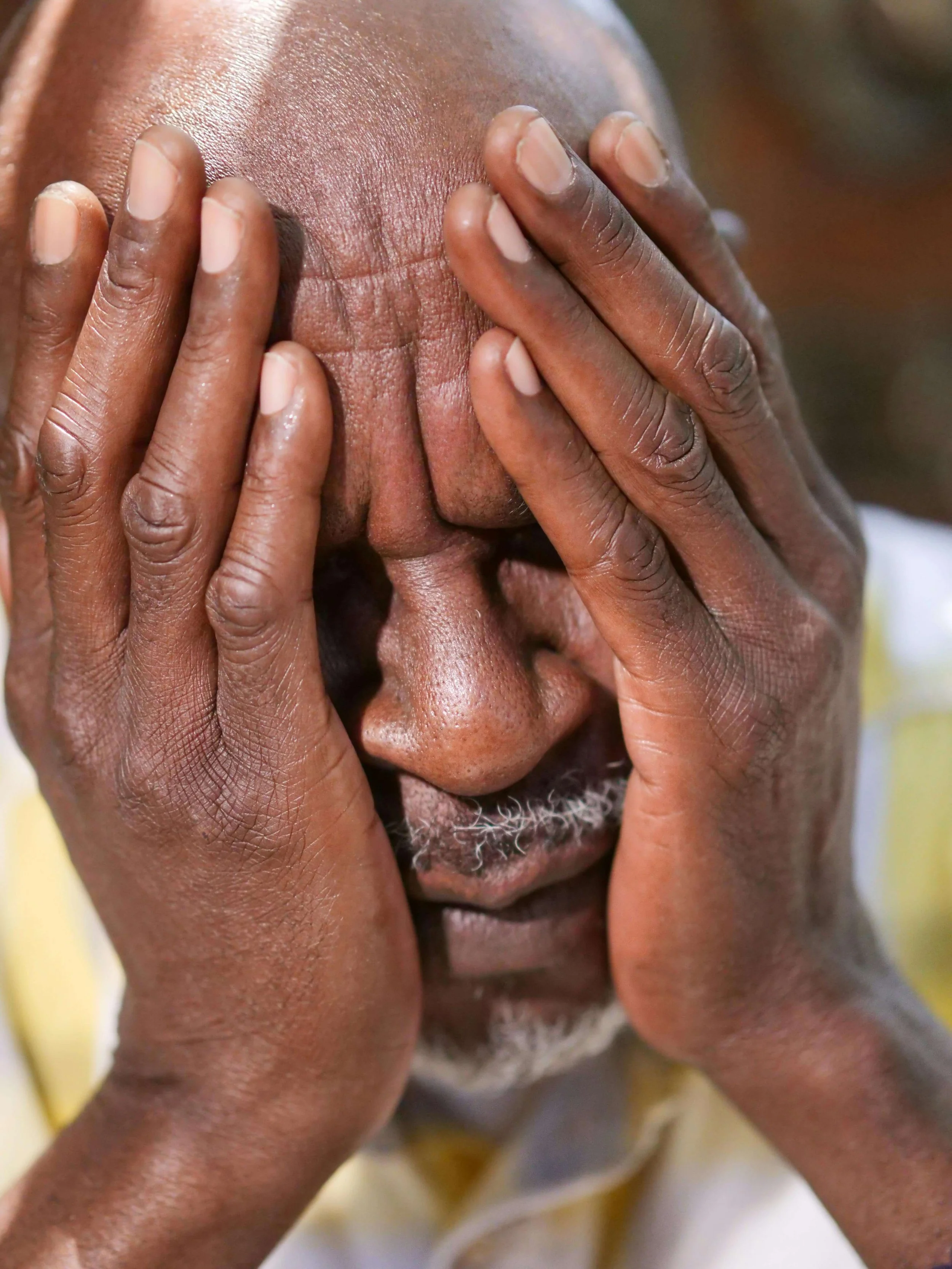Have you ever been going about your day when you’re suddenly struck by an overwhelming question: “What’s the point of all this?” The mundane rhythm of life—the job, the errands, the obligations—feels devoid of meaning. Everyone around you seems to be moving forward with certainty, but you struggle to shake the feeling that you’re lost. Or maybe it’s a sense of dread and hopelessness about the state of the world that seems to occupy your thoughts.
Moments like this are not uncommon amidst the human experience, yet nonetheless stressful. Let’s delve deeper into understanding more about wrestling with existential questions and what can be done about them.
What is Existential Anxiety?
Existential anxiety refers to a deep sense of unease that arises when we confront deeper questions about the meaning of life, our purpose, and the inevitability of death. It often accompanies the big questions we ask ourselves like: "Why am I here?" "What is my purpose?" or "What happens after I die?" Questions such as these can unwillingly fling us into distress, stirring up feelings of doubt, dread, and disorientation. Unlike other forms of anxiety, which may stem from specific external stressors or fears, existential anxiety is a more abstract form of discomfort. It’s rooted in our awareness of our own mortality, the vastness of the universe, and the complexity of human existence.
In recent years, existential anxiety has become increasingly prevalent due to the constant influx of news about global crises, climate change, political instability, and economic uncertainty. The modern world presents a unique challenge: we are more connected to current events than ever before, but this connection often leaves us feeling powerless. When confronted daily with these things, it’s natural to question the state of humanity and feel a looming sense of dread about the future.
The Signs of Existential Anxiety
Recognizing existential anxiety can be challenging because it often manifests subtly, blending into our everyday thoughts and feelings. But there are some common signs to look out for:
A Sense of Emptiness or Meaninglessness: You might start questioning whether your life has any “real” meaning. This feeling can be overwhelming and lead to a sense of emptiness as if everything you’re doing is in vain. You may feel disconnected from the things that once brought you joy or satisfaction.
Constant Overthinking: If you notice yourself frequently reflecting on deep philosophical questions—about life, death, the universe, or your personal legacy—you might be experiencing existential anxiety. This can sometimes lead to spiraling thoughts that are difficult to control, creating a constant state of mental unrest.
Fear of Mortality and Global Catastrophe: The awareness that life is finite can trigger a profound fear of death. But beyond personal mortality, many experience anxiety about the survival of society as a whole. The state of the world, from political conflicts to climate change, can create a sense of impending doom that feeds existential dread.
A Desire for Control: When faced with the unknowns of life, existential anxiety may manifest in a heightened desire to control your environment, relationships, or even your future. You may try to avoid uncertainty by seeking rigid answers or routine, but this may even increase the feeling of helplessness.
Social Isolation or Withdrawal: Existential anxiety can sometimes lead people to isolate from others. The overwhelming nature of these thoughts can make it hard to connect with others who may not understand or experience these feelings in the same way. You may find it difficult to relate to conversations that focus on day-to-day matters or feel disconnected from social norms.
Why Does Existential Anxiety Occur?
Existential anxiety often emerges during periods of significant life change or crisis—such as after a major loss, during transitions (like graduating or changing careers), or when we experience a deep sense of dissatisfaction. These moments can shake the foundations of our identity and force us to confront difficult questions about our existence.
However, in today's world, existential anxiety is also driven by an overwhelming awareness of societal issues. With 24/7 news cycles, social media, and instant global updates, people are constantly reminded of crises beyond their control. This can create a sense of despair, leading individuals to question the stability of the world and their place in it.
It’s important to note that existential anxiety itself is not a symptom of mental illness. It’s a natural human experience—an emotional and cognitive reaction to the complex and often overwhelming nature of life. We’re all searching for meaning, purpose, and understanding, which can sometimes lead us to these existential reflections.
Coping with Existential Anxiety
Though existential anxiety can be distressing, it doesn’t have to control your life. Here are a few strategies that can help you navigate these overwhelming feelings:
Limit News Consumption: While staying informed is important, constant exposure to distressing news can worsen existential anxiety. Try setting boundaries around your media consumption, such as limiting news checks to once or twice a day or following sources that provide balanced perspectives rather than fear-driven narratives.
Practice Mindfulness and Meditation Engaging in mindfulness can help you stay grounded in the present moment and alleviate the spiraling thoughts that come with existential anxiety. Focusing on your breath, sensations, and surroundings can bring you back to the now, reducing the grip of existential worries.
Reflect on Your Values and Beliefs One of the most effective ways to manage existential anxiety is to reflect on your own values, beliefs, and sense of purpose. What truly matters to you? What brings you meaning? Cultivating a sense of personal meaning, whether through creative expression, relationships, or community involvement, can help anchor you when these deep questions arise.
Seek Support While existential anxiety can feel isolating, you don’t have to go through it alone. Talking to a therapist, counselor, or trusted friend can provide much-needed perspective and emotional support in a difficult time. Sometimes, simply knowing that others share similar feelings can be incredibly comforting.
Allow Yourself to Not Have All the Answers Sometimes, the best way to cope with existential anxiety is to accept that you don’t need all the answers. Life’s big questions may never be fully answered, and that’s okay. Embracing uncertainty can help you loosen the grip of existential dread.
Focus on the Things You Can Control While we can’t control life’s big unknowns, we can focus on the things that are within our control. Take time to invest in your relationships, nurture your mental health, and engage in activities that bring you joy and fulfillment. These small actions can make a big difference in reducing feelings of anxiety.
Existential anxiety is a natural part of the human experience, but recognizing it and understanding its roots—whether personal or influenced by the world around us—can help you navigate it more effectively. By acknowledging the complexity of life and embracing uncertainty, you can find peace even in the midst of these deep, existential questions. Remember, it’s okay to not have all the answers—and sometimes, the journey of seeking meaning is just as important as finding it.
Start Working With A Therapist in Asheville, NC
If you are working through a bought of existential anxiety or have more questions about what treatment might be best for you, then we are happy to help! Reach out to us today for a free, 15-minute consultation. Remember that you are not alone in this. Our team of caring therapists would be happy to offer support from our Asheville, NC-based practice. If you are interested in learning more or ready to take the first step toward improving your mental health follow these simple steps:
Meet with a compassionate therapist
Begin your journey to healing and relief!
Other Services Offered by Strive On Counseling
We offer a wide range of mental health services designed to support your overall well-being. Our services include individual counseling, anxiety treatment, EMDR trauma therapy, therapy for men’s issues, mindfulness practices, Buddhist counseling, Cognitive Behavioral Therapy (CBT), and teletherapy/online therapy. Some other resources we offer include guided meditations, a list of books and other useful resources, and online courses. If you would like more information about any of these services, please don’t hesitate to reach out and start your therapy journey in North Carolina today!




